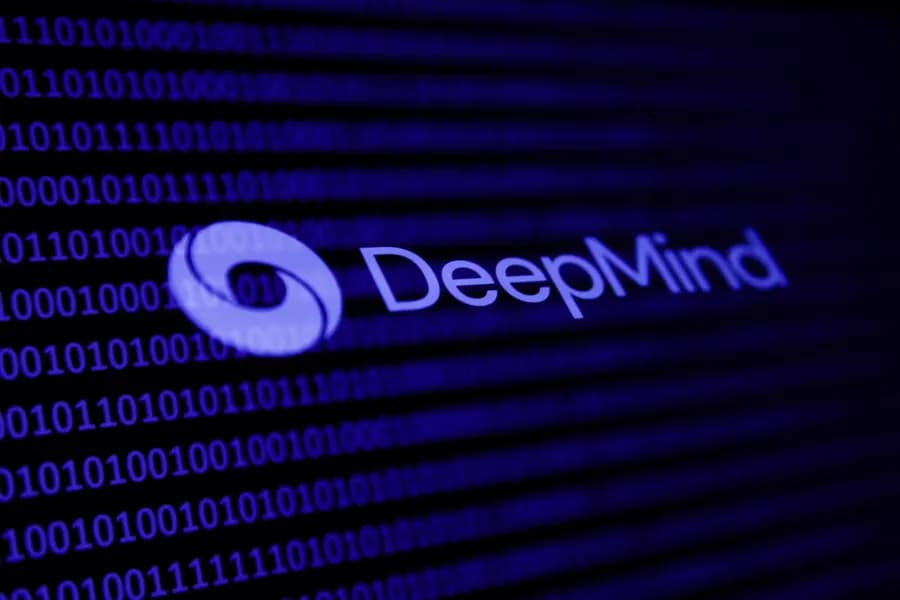We're loading the full news article for you. This includes the article content, images, author information, and related articles.
The film, 'The Thinking Game,' offers a rare look into the Nobel Prize-winning breakthroughs of the secretive AI lab, holding profound implications for Kenya's burgeoning tech and research sectors.

GLOBAL – Google's pioneering artificial intelligence lab, DeepMind, has released its feature-length documentary, "The Thinking Game," for free public viewing on YouTube as of Tuesday, November 25, 2025 (EAT). The nearly 90-minute film, an official selection of the 2024 Tribeca Festival, provides an unprecedented, behind-the-scenes look at the triumphs and tribulations of one of the world's most advanced AI research teams.
Filmed over five years, the documentary chronicles the journey of DeepMind from its early days of teaching an AI to play the video game Pong to its monumental achievement in solving the 50-year-old “protein folding problem” with its AlphaFold program. This breakthrough, which has dramatically accelerated biological and medical research, earned DeepMind's co-founder and CEO, Demis Hassabis, and lead researcher John Jumper the 2024 Nobel Prize in Chemistry.
The film is directed by Greg Kohs, who also directed the 2017 documentary "AlphaGo." That earlier film detailed DeepMind's success in creating an AI that defeated Lee Sedol, the world's top player of the ancient and complex game of Go, a watershed moment for artificial intelligence that occurred in March 2016.
"The Thinking Game" centers heavily on the life and vision of Demis Hassabis. A child chess prodigy who reached the rank of master at 13, Hassabis leveraged his early fascination with games and strategy into a career at the forefront of AI. After graduating from the University of Cambridge, he co-designed the multi-million selling game "Theme Park" at just 17 before founding his own successful video game company, Elixir Studios. He later earned a PhD in cognitive neuroscience, aiming to fuse insights from the human brain with machine learning to create artificial general intelligence (AGI).
In 2010, Hassabis co-founded DeepMind in London with the ambitious mission to "solve intelligence" and then use that intelligence to solve everything else. Google acquired the company in 2014 for a reported $500 million, its largest European acquisition at the time.
The documentary showcases the pivotal moment the AlphaFold team discovered their program could predict the 3D structure of proteins from their amino acid sequence with atomic-level accuracy. This challenge, which previously took scientists years of expensive lab work for a single protein, can now be accomplished in minutes. In July 2021, DeepMind and its partners made the AlphaFold Protein Structure Database freely available to the global scientific community. It now contains over 200 million protein structure predictions and is used by over 3 million researchers in more than 190 countries, revolutionizing fields from drug discovery for diseases like cancer and Alzheimer's to developing more resilient crops.
While the documentary does not directly feature Kenya, the technologies it showcases have significant implications for the nation's development agenda. Kenya's government is actively promoting AI integration through its National AI Strategy (2025-2030) and Digital Master Plan (2022-2032). A recent report estimated that AI could add over KSh 311 billion ($2.4 billion) to Kenya's economy by 2030.
The open-access nature of tools like AlphaFold is particularly crucial for local researchers and institutions, democratizing access to cutting-edge scientific infrastructure. This aligns with Google's broader engagement in the region, including a Nairobi-based AI research team and a July 2025 announcement of KSh 904 million in funding to accelerate AI education and innovation in Kenya and three other African nations. Google's local projects include collaborations with organizations like Jacaranda Health to use AI-powered handheld ultrasound devices to improve maternal healthcare. The rapid adoption of AI is already evident, with a November 2025 survey indicating that 96% of Kenyan organizations have started their AI journey.
The release of "The Thinking Game" serves as both an inspiration and a practical demonstration of AI's potential. For Kenya's vibrant tech hubs and academic institutions, it highlights the trajectory from foundational research to world-changing applications, offering a roadmap as the country seeks to harness AI to solve local challenges in agriculture, healthcare, and economic development.
Keep the conversation in one place—threads here stay linked to the story and in the forums.
Sign in to start a discussion
Start a conversation about this story and keep it linked here.
Other hot threads
E-sports and Gaming Community in Kenya
Active 9 months ago
The Role of Technology in Modern Agriculture (AgriTech)
Active 9 months ago
Popular Recreational Activities Across Counties
Active 9 months ago
Investing in Youth Sports Development Programs
Active 9 months ago